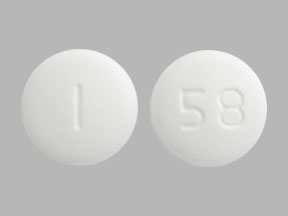Sildenafil Interactions
There are 373 drugs known to interact with sildenafil, along with 10 disease interactions, and 2 alcohol/food interactions. Of the total drug interactions, 101 are major, 265 are moderate, and 7 are minor.
- View all 373 medications that may interact with sildenafil
- View sildenafil alcohol/food interactions (2)
- View sildenafil disease interactions (10)
Most frequently checked interactions
View interaction reports for sildenafil and the medicines listed below.
- Adderall (amphetamine / dextroamphetamine)
- Adderall XR (amphetamine / dextroamphetamine)
- Alcohol (contained in alcoholic beverages) (ethanol)
- Aspir 81 (aspirin)
- Aspirin Low Strength (aspirin)
- Benadryl (diphenhydramine)
- Cialis (tadalafil)
- CoQ10 (ubiquinone)
- Crestor (rosuvastatin)
- Cymbalta (duloxetine)
- Eliquis (apixaban)
- Fish Oil (omega-3 polyunsaturated fatty acids)
- Flomax (tamsulosin)
- Flonase (fluticasone nasal)
- Jardiance (empagliflozin)
- Lipitor (atorvastatin)
- Lyrica (pregabalin)
- Metoprolol Succinate ER (metoprolol)
- Metoprolol Tartrate (metoprolol)
- Mounjaro (tirzepatide)
- Ozempic (semaglutide)
- Symbicort (budesonide / formoterol)
- Tylenol (acetaminophen)
- Vitamin B12 (cyanocobalamin)
- Vitamin C (ascorbic acid)
- Vitamin D3 (cholecalciferol)
- Xanax (alprazolam)
- Xarelto (rivaroxaban)
- Zinc (zinc sulfate)
- Zyrtec (cetirizine)
Sildenafil alcohol/food interactions
There are 2 alcohol/food interactions with sildenafil.
Sildenafil disease interactions
There are 10 disease interactions with sildenafil which include:
- cardiovascular disease
- priapism
- alcoholism
- hearing loss
- liver disease
- seizure disorders
- sickle cell disease
- bleeding disorders
- renal dysfunction
- visual disorders
More about sildenafil
- sildenafil consumer information
- Compare alternatives
- Pricing & coupons
- Reviews (503)
- Drug images
- Latest FDA alerts (13)
- Side effects
- Dosage information
- Patient tips
- During pregnancy
- Support group
- Drug class: agents for pulmonary hypertension
- Breastfeeding
Related treatment guides
Drug Interaction Classification
| Highly clinically significant. Avoid combinations; the risk of the interaction outweighs the benefit. | |
| Moderately clinically significant. Usually avoid combinations; use it only under special circumstances. | |
| Minimally clinically significant. Minimize risk; assess risk and consider an alternative drug, take steps to circumvent the interaction risk and/or institute a monitoring plan. | |
| No interaction information available. |
See also:
Further information
Always consult your healthcare provider to ensure the information displayed on this page applies to your personal circumstances.


